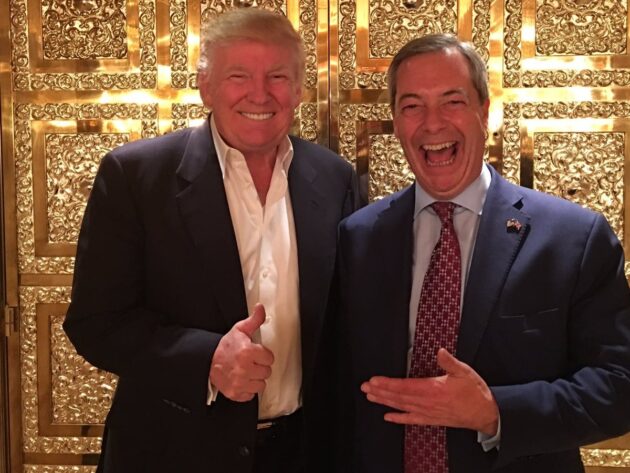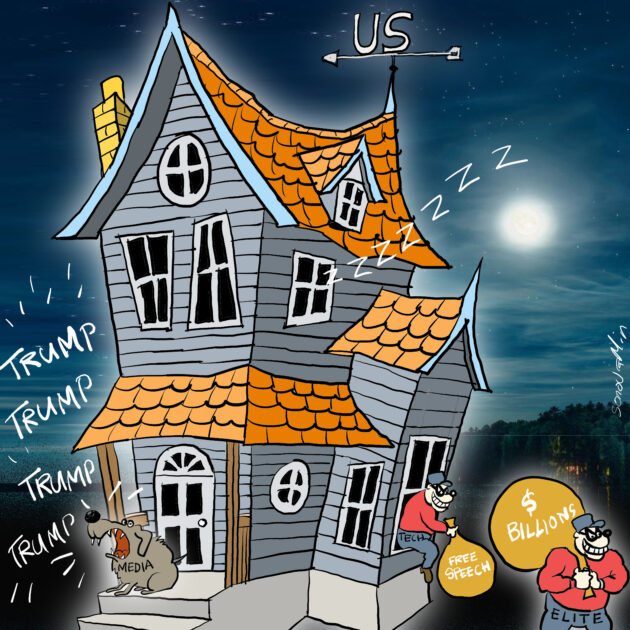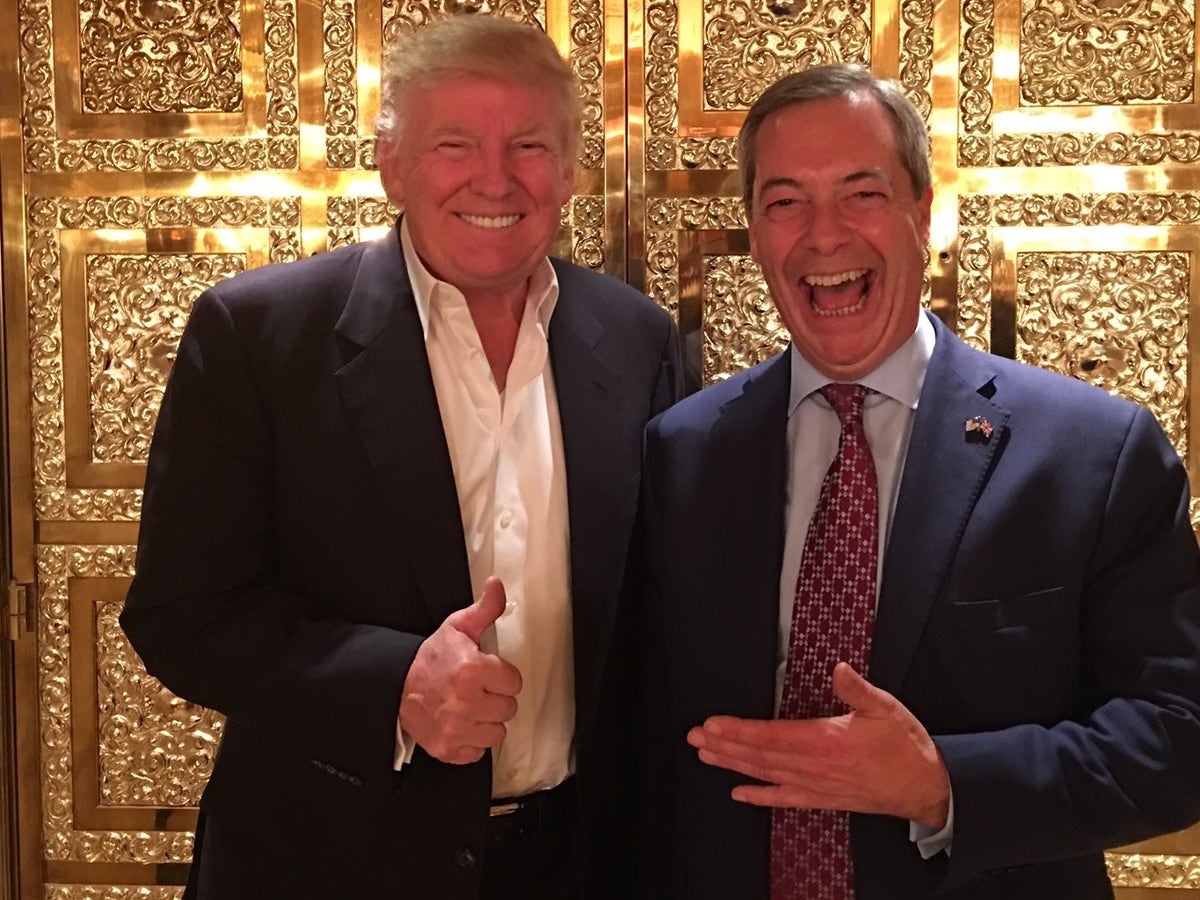Dark Jester
For some time now, politics has always been divided on partisan lines and specifically can be easily divided based on the political continuum. On the left you had people who believed that the state provided better goods and services and therefore they favoured bigger government and more state institutions. The left were more concerned with equality and diversity which meant favouring redistribution of wealth and more regulations in the market with the intention of improving people’s lives, specifically minority groups.
This is a far cry from the original left-winger or liberal. The first thinkers on the left were concerned with freedom. Particularly people like Thomas Paine. Freedom from what they perceived as the oppressive system of the ancien regime, the feudal system where people were placed in society based on class or status which itself was inherited from the family you were born into. This society divided people between classes with no hope of advancement based on the belief that each person has been put into place for a reason and it would be chaotic if this system were broken.
The first ‘liberals’ in particular also challenged the authority of monarchs under the belief of the right of people to rule themselves and their own affairs. This all changed with the New Left when communists and socialists began to take over. This new movement was all about equality for minorities, such as women, racial minorities, LBGT and workers; leading to opposition to perceived privileged groups of people in power such as males, whites, heterosexuals and employers.
In opposition to them was the right. A group of thinkers who were concerned with stability and keeping people unified and together, having the belief that a stable and secure society would protect everyone from harm. Thinkers like Edmund Burke regarded society as a living organism which means that anyone who left their place in society would damage the whole of society. This would change with Russell Kirk who would formulate what would become American conservatism. He attempted to integrate the ideas of the classical liberals John Locke and Adam Smith and argue that, economically, conservatives should continue to stand for morality but should also stand for private property rights and free enterprise. This would further develop with the New Right who mixed free-market economics with socially conservative ideology. The best examples of this are Reagan and Thatcher.
However, things seem to be changing in the political landscape. In 2016 we had the double phenomena of Brexit and Trump. From 2016-2020 we saw an interesting thing where we had populist figures. What was most interesting was the aftershocks that brought.
For the first time, we saw people rejecting the traditional parties and groups in politics and going for outsiders.
People who historically had nothing to do with politics. Particularly figures like Trump and Farage who did not have any political experience let alone any qualification in politics. Trump has a Bachelor of Science in economics from the Wharton School of the University of Pennsylvania. Nigel Farage doesn’t have a qualification. However, they both have extensive experience in marketing and in business (particularly Trump).

Farage and Trump both styled themselves as outsiders, people who were not part of the corrupt establishment. Therefore they were the perfect people to represent the ordinary everyday British and Americans who felt disenfranchised and ignored by the political establishment in their respective countries.
One of the interesting things to note here is the data that came out. Most people focus on the right-leaning conservatives. However, the data also show that a number of Labour-leaning people also voted for Brexit. The best evidence for this can also be found in the recent 2019 UK general elections when we saw traditionally Labour areas voting Conservative and traditionally Conservative areas voting Labour, showing that people are not strictly ideologues who stick fiercely to one party. In this case, Labour was more Eurocentric and socially liberal, whereas Conservatives were more socially conservative and generally Eurosceptic.
Again we see the appeal for people who may be socially liberal but are also distrustful of institutions like the EU. George Galloway, a self-proclaimed socialist is currently running as a candidate for the party he created: the Traditional Workers Party with an economically left but Eurosceptic platform proving that populism and nationalism are present in the left as well. This is further supported by the rise of Maduro. However, the best case of cooperation for populists and nationalists across the aisle was the 2018 elections in Italy when the Lega Nord (Northern League) entered into a coalition agreement with the Five Star Movement both on an anti-establishment platform.
Another factor to take into account is how the Woke mob are also expelling people from the left simply for not having the right opinion or for offending the crowd. However, the worse crime is becoming independent and questioning the SJW narrative, which is what has alienated much of the left. This has included classical liberals and libertarians. The environmentalist movement has also become divided over policies and the best response. One group of environmentalists were ostracised for suggesting nuclear power as a possible alternative to coal and gas. We have also seen cannibalisation of the feminist movement with feminists divided over issues such as prostitution, pornography and, more recently, the transgender debate.
The age of Covid has further fractured the left/right with people across the political aisle suddenly rebelling against the academics, politicians and the media. We are seeing signs of that across the West. In America, we are seeing huge developments in the political landscape. In New Mexico the Republicans took over local bodies. Polls are predicting that the Republicans will retake the House of Representatives in the next elections.
In New York, there is much opposition to Mayor Bill de Blasio, mainly against the mask mandate and the vaccine passports. With the Mayoral elections coming up, the polls are showing the Republican candidate Curtis Sliwa (the founder of the Guardian Angels) ahead against the Democratic candidate.
In California, there are open conflicts between anti-mask activists and ANTIFA. Recently, California Governor Gavin Newsom was recalled to elections after 1.6 million Californians voted ‘yes’ in the referendum to trigger it. Now, the current frontrunner is conservative commentator Larry Elder who has even been endorsed by Democrats. Social media influencers and models are chiming in, encouraging people to vote Newsom out. One influencer was quoted as saying “it doesn’t matter Republican or Democrat, left or right, just vote Newsom out“.
Portland has almost become a war zone with fights between patriotic militias like the Proud Boys against ANTIFA as the police refuse to intervene with the mayor saying he was not going to protect “far-right extremists”.
Across America, there is an increasing number of militias forming with the existing militias growing in membership. It was recorded that first-time gun buyers were skyrocketing. This was in light of the year of political unrest with violent Black Lives Matter and ANTIFA riots. Due to the police being unable to contain the riots this led to a loss of trust in the police and citizens needing to protect themselves.
The media first attempted to demonise these militias by branding them as “right-wing” and “more dangerous than the Taliban“. An example of this was the media’s treatment of 17-year-old Kyle Rittenhouse who was classed as a mass shooter for simply defending himself and a private business from the rioters.
Across America, we are seeing parents rising up against school boards over mask and vax mandates and critical race theory, even in some of the swing states showing opposition across the board to woke ideology. What this shows is that Americans are losing trust in their public institutions.
We also see a fragmenting of the various identity groups in the United States. Candace Owens led the Blexit campaign, encouraging African Americans to leave the left. Gay actor Brandon Stratka organised the Walkaway campaign, encouraging people to walk away from the Democratic party. He didn’t even specify where they should go, as long as it wasn’t the Democrats.
Across Europe, there were massive protests against vaccine passports along with the rise in popularity of populist and nationalist parties. In France, Marine Le Pen and the National Front party are polling ahead of Macron. As of 2019, Alternative for Germany became the second most popular party in Germany. In the Netherlands, Geert Wilders’ Party for Freedom is increasing in support. In Spain, the People’s Party has become the second-largest party under the ruling socialist party with centre-right parties taking the majority in both houses.
The common denominator with all of them is that they are all nationalist and populist. They all hate international institutions like the UN and the EU. They are opposed to mass immigration. Most importantly, figures from these parties have opposed lockdowns, vaccine and mask mandates. It’s also important to note that while some of these parties have opposed left-wing governments, some have opposed centre-right ‘moderate’ parties.
In Australia, where we are seeing the most restrictive and oppressive measures, we are seeing people across the political aisle united in opposition to the lockdowns. Everything from Avi Yemeni, to Pete Evans, George Panayides and Pauline Hanson. Even Jordan Shanks, who criticises the Australian centre-right has had enough of the restrictions.
What all of this shows is that the new divide is not between conservative or liberal, right or left. The new divide is between the political establishment class, in their comfortable seats of power telling the rest of us how we should live our lives while they do the complete opposite, and the ordinary, everyday people who are sick of tired of the virtue signalling and hypocrisy of the elites who preach to them every day about how doing this or that will make the world better.
This new political divide is between the globalist ‘work-anywheres’ who believe they can push their values on entire cultures and civilisations without any consideration for the difference in understanding of values and traditions and the nationalist ‘work-somewheres’ who believe in nations and borders and would be more likely to support sovereignty, nationhood and self-determination.
Importantly, the new divide is between people who want freedom and the elites who want control.

I have experienced this in New Zealand. At one of the ‘Freedom Marches,’ I found people from all backgrounds. The media tended to focus on the Q-anon people and call them ‘far right’. However, there were people from the ‘Save Shelly Bay’ movement, there were people from the ‘Free Julian Assange’ crowd there. There was even someone who was there to call the government out on their response to Pike River. These people did not trust any of the parties in Parliament, left or right. What these people wanted was freedom. Freedom of choice and the freedom to live their lives without interference. It was suspicious that rugby players, actors and politicians had more freedom under pandemic conditions than ordinary people.
I have watched a fragmentation of the left, with feminists divided over the issue of transgender rights and liberals over the issue of free speech. I’ve seen a fragmentation on the right over issues of globalisation, outsourcing of production and free trade. Now both groups come together over being disenfranchised over lockdowns, mask mandates and forced vaccinations.
This is the new political divide that we now face. It is one that the elites fear because it means that the general populace have stopped fighting each other and have united against the establishment.
People often think that the left/right divide is based on different intentions for society but I would argue that the divide reflects a different understanding of equality, freedoms and rights. However, everyone is still proud of the culture and civilisation that allows this diversity of opinions. The reason they have these ideas is because of loyalty and pride for their country that has provided them with the freedoms to disagree and be themselves (mostly) and they will therefore wish to defend their nation-state from any that wish to destroy the society in which they have prospered. In the end, despite political ideologues and people having different ideas about how their country should be run, this comes out of love and concern for their country.
Please share so others can discover The BFD.

